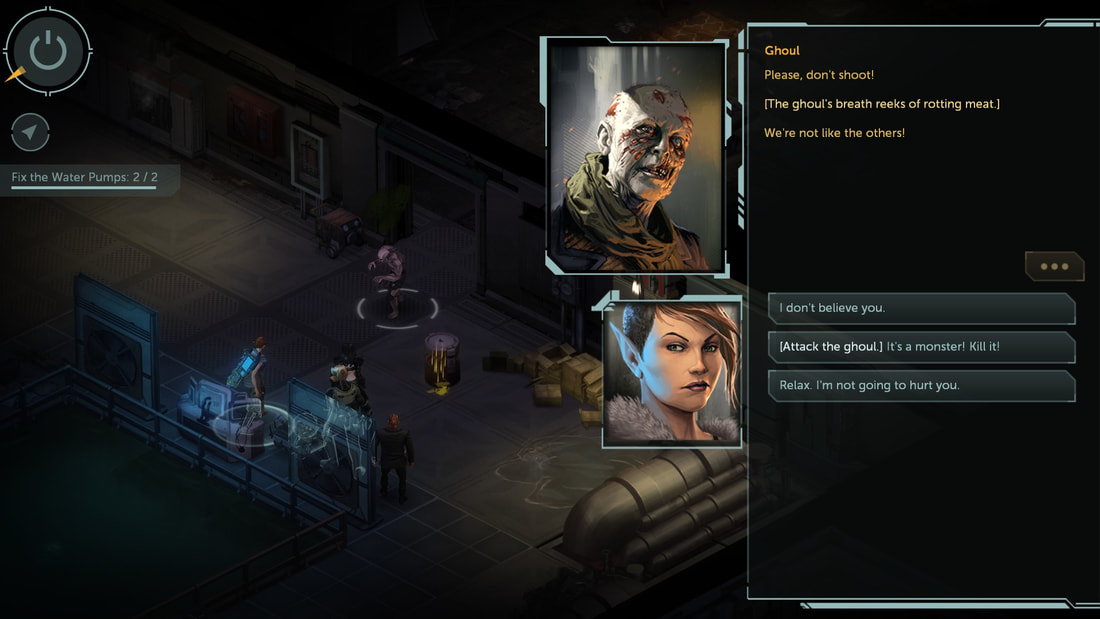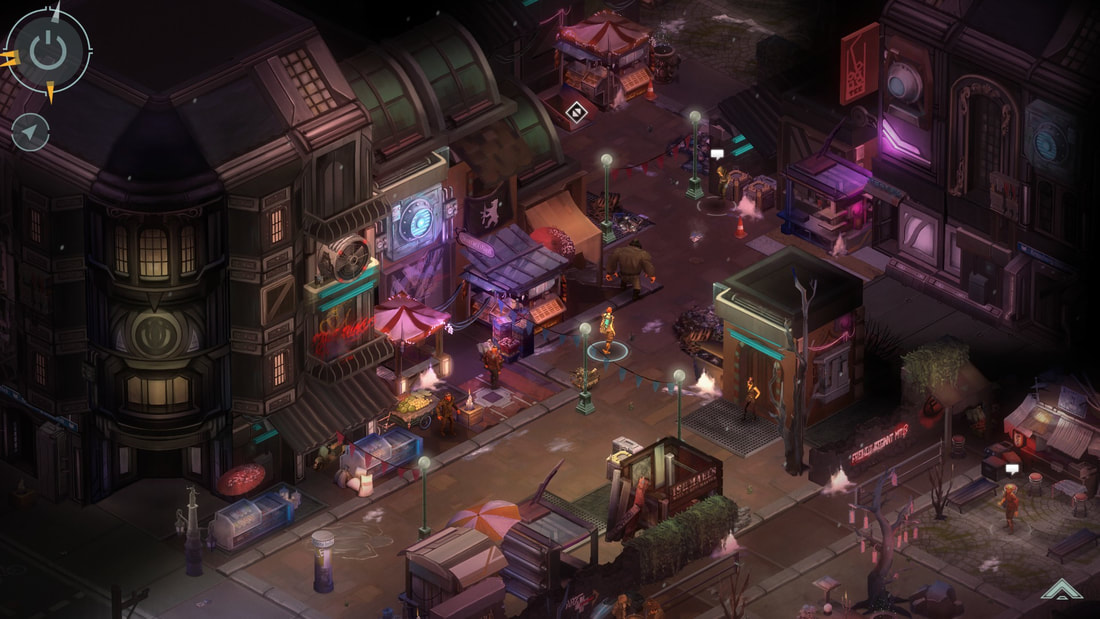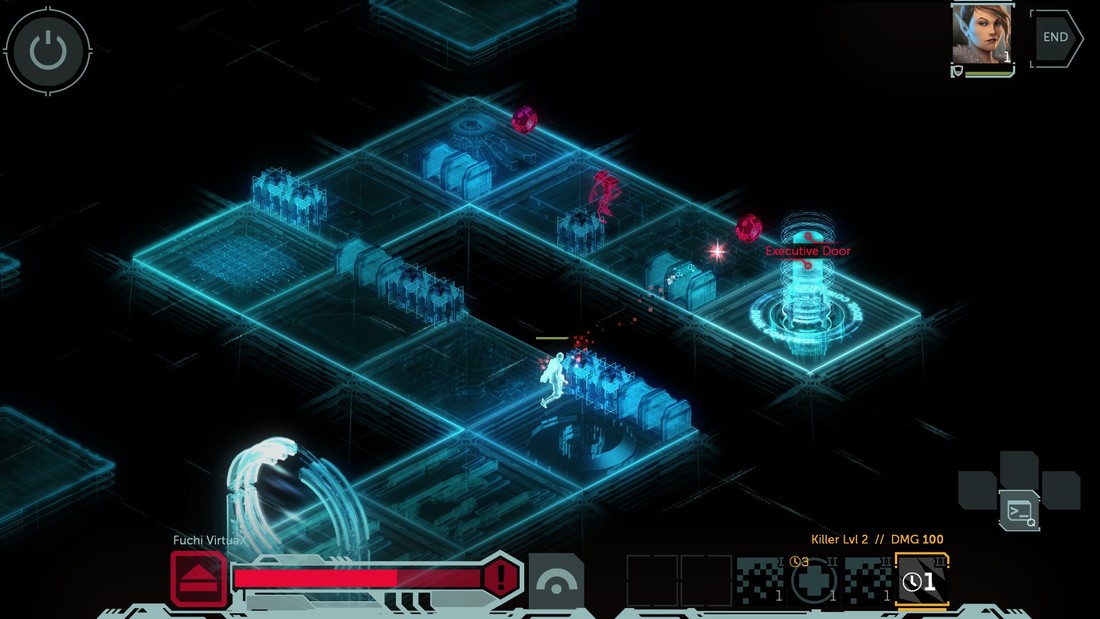 When you hear the word “cyberpunk” do you think of glittering neon cityscapes speckled with flying cars and populated by sleek androids? If so, Shadowrun would like to have a word with you. Old-school cyberpunk was about people who have been stepped on or stamped out by corporate-controlled technology in the near future, and how they used that same technology to fight back. The Shadowrun setting, originally appearing in 1989 as a pen-and-paper RPG, has always been a unique beast, mixing even parts fantasy and sci-fi. While the image of an elf hacking a computer to steal from a dragon is too silly for some to stomach (William Gibson, whose novel Neuromancer inspired Shadowrun, famously despises the games), the series offers a compelling peek into a technobabble-drenched life of crime. Harebrained Schemes released three Shadowrun games in the 2010s, and as far as I’m concerned, Shadowrun: Dragonfall is the best of them. Technically, we’re talking about Shadowrun: Dragonfall - Director’s Cut, which added a few new missions as well as an improved interface and other enhancements, but that’s just too much punctuation for one title. It’s also the only version of the game currently available. Set in the anarchic “Flux State” of Berlin in 2054, it expanded on the somewhat threadbare Shadowrun Returns without succumbing to the bloat that sometimes plagues its successor, Shadowrun: Hong Kong, which is still an excellent game in its own right. After stumbling upon a terrifying secret, you end up on the hit list of a group that could potentially destroy all of Berlin. Your mission is to shut the group down before they can take you out, though you spend most of the game running side jobs to earn the cash for this massive undertaking. Like the other entries in the series, Dragonfall is a turn-based strategy/RPG hybrid that mixes isometric grid-based combat with exploration and a huge amount of both character development and stat crunching. You play a custom character who takes control of their own squad of shadowrunners early in the game. Shadowrunners are essentially freelance criminals who are contracted for jobs as part of the neverending corporate wars that define the Shadowrun universe. In fitting with the game’s theme, you’re driven by the need for cash, not loyalty, and your employers have as much disdain for you as you do for them. When you go on missions, you can choose up to three companions either from your regular team who will grow alongside you, or from a pool of mercenaries if you’re afraid of commitment and also want to miss out on the best part of the game. The biggest advantage that Dragonfall has over the rest of the franchise is its characters. Despite my borderline unhealthy crush on Hong Kong’s rat shaman, Gobbet, your regular crew in Dragonfall comprises some of my favorite video game characters ever. Off the top of my head, nothing else even comes close. When you’re not on a job, you’ll spend your time in the Kreuzbasar, a relatively safe and stable neighborhood full of colorful inhabitants. Almost no one feels generic. Everyone from quest givers to simple shopkeepers has a distinct personality, even if your interactions with them are purely commercial. I found myself holding personal grudges against characters who had wronged me, and feeling something akin to friendship to those who managed to show kindness in the face of Berlin’s oppressive squalor. Of course, you’ll spend most of your time with your crew, which includes a disgraced commando (probably your least interesting teammate except as a foil to the others), a punk-singer-turned-shaman, and a young woman who’s replaced nearly every part of herself with machinery. They’ve all been chewed up and spat out by society in some way or another, either by supernatural forces, human supremacists, or the ruthless corporations that run the world. If Deus Ex’s Adam Jensen existed in the Shadowrun universe, he’d be just another prick standing between you and a paycheck. You can dive deep into your team members’ backstories as you play the game, provided you win their trust, and each not only fleshes out the game’s world and themes, but also stands as a fully realized person. Winning the trust of your allies is by no means simple, though. You’ll need to prove that you’re worthy of respect, and the way to do that varies with each character. Choosing whether to suck up to someone, stand your ground, or simply leave them alone can have a profound impact on your relationship with your squad as well as the outcome of quests. It’s possible to lose access to entire plotlines and characters because of a careless word. Fortunately, Dragonfall’s conversation system is as good as any I’ve seen in a game. In some cases, you need to carefully read your conversation partner, sizing up their tone, their needs, their relative power, and how you can turn any of those things to your advantage. This might mean anything from flattering a potential employer for a job to threatening a janitor out of sounding an alarm. In other cases, your skills come into play. Dragonfall has a complex skill progression system and is fairly stingy about doling out XP, or “karma.” You can invest these karma points in attributes (such as strength or charisma) or skills (such as close combat or summoning), but your level in any skill can never be higher than the attribute that governs it (so with five points strength, you could have a maximum of five in close combat, for instance). In addition, the cost to buy these increases by one each level. What all this means is that you need to invest your karma carefully. You’ll probably never max out more than one or two skills, and spreading yourself too thin will leave you woefully underpowered. It’s much better to go down a path you find interesting and roleplay around it. The integration of these skills with conversation and exploration is one of the things that makes Dragonfall a masterpiece. Your karma investments will pay off in unexpected ways as you play. Maybe your knowledge of medicine will help you identify a dangerous substance or your aptitude as a spell caster will help you astrally track a target. Some skills will come into play far more often than others — decking, or hacking, will constantly get you out of jams — but the strict upgrade economy keeps you from gaming the system, which makes these successful skill checks feel all the more organic and satisfying. The right combination of skills and good dialogue choices can even get you through some missions without firing a single bullet. Dragonfall shines just a bit less in combat. Victory relies heavily on strategic positioning, use of cover, and rationing your limited action points. While not quite as unforgiving as something like XCOM, the game has pretty low tolerance for mistakes, making planning and frequent use of support abilities a must. What’s more, you can often manipulate the environment to your advantage, particularly if you’re a decker or shaman. Admittedly, all of that sounds pretty thrilling, but it gets old by the game’s end. Despite the fact that you regularly receive new abilities to use in battle, the core gameplay remains the same. Using a different ability or weapon mostly just means doing more damage or hitting at a longer range, and like in XCOM your squadmates have the frustrating tendency to whiff repeatedly even when their attacks have a 90%+ chance of hitting. There’s nothing wrong with the combat, and it was good enough to hold my attention through the end; I just wish it had the dynamism and inventiveness that enliven every other part of the game. It’s worth mentioning the Matrix, since it’s a major differentiator for the game, even though in practice it’s just a jankier version of combat. Well before Keanu Reeves stuck it to the Man and expressionlessly saved humanity from evil squid robots, the term “the Matrix” was used to describe a digital landscape. In Dragonfall you explore this space primarily to steal valuable corporate secrets, but sometimes to access locked doors or other bypass other security measures. This plays out on an alternate map with basically the same rules that govern combat in the real world as you fight representations of security programs protecting their data. The difference is that only one character can enter at a time, and only if they have a cyberdeck. Your available abilities are also much more limited, and since your chance to hit is calculated differently, you tend to be less accurate as well. It’s probably the biggest missed opportunity of the franchise, though experiencing it is almost entirely optional. While some of Dragonfall’s mechanics may wear thin, its world never does. The Flux State is a fascinating setting, packed with interesting characters, political intrigue, and a keen sense of having been lived in and worn out. Evocative text passages precede level transitions that set the stage for what’s to come and fill out the world in a way that cutscenes would struggle to do. While the graphics are nothing mind-blowing, they’re certainly stylish, and the game’s solid art direction makes the world come alive, especially in the Kreuzbasar. The game’s sound carries far more than its own weight, lending life to mostly still backdrops with the clever use of crowd noise, rumbling subway trains, and the dull hum of sterile offices to sell environments. And though you’ll hear a lot of the same songs repeated throughout the game, they’re tonally perfect and never got old for me. I constantly felt myself wanting to pull up a seat in the Kreuzbasar’s coffee shop or stop to peruse a street vendor’s drones. Dragonfall depicts a world completely under the heel of otherworldly monsters and capitalism run amok, but it’s still teeming with humor and humanity, from surprising encounters like meeting the self-made king of an abandoned laboratory to sharing a quiet moment of reflection with your team after a botched run. In Dragonfall, you’re always a job away from starving, a step ahead of those who want you dead, but its vision is so compelling, it gives this squalor its own kind of grandeur.
0 Comments
Leave a Reply. |
Archives
May 2018
Categories |


